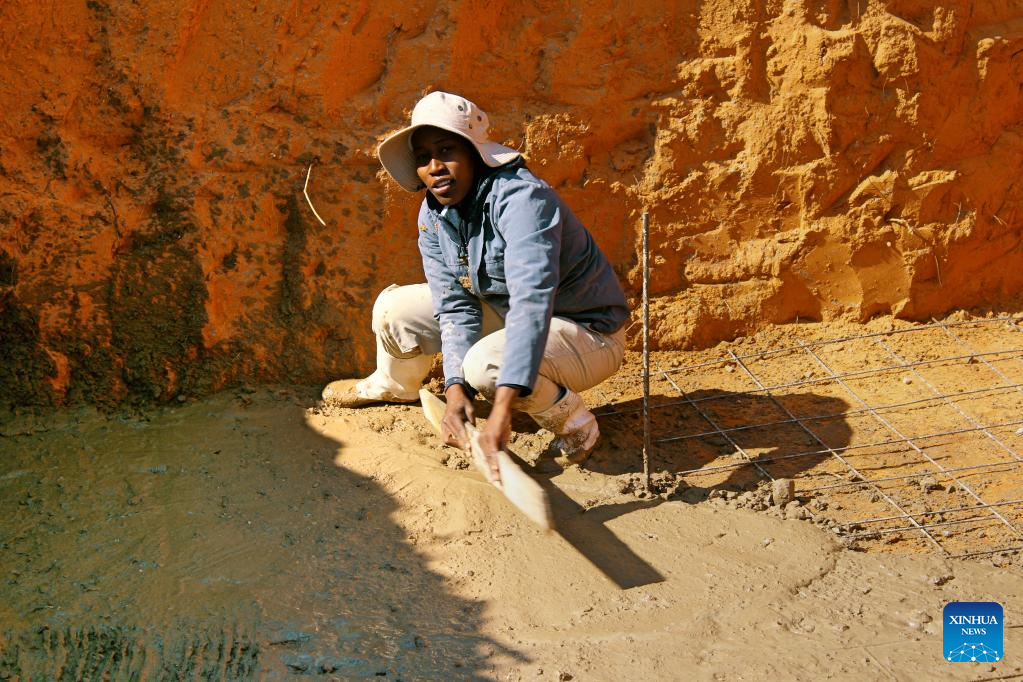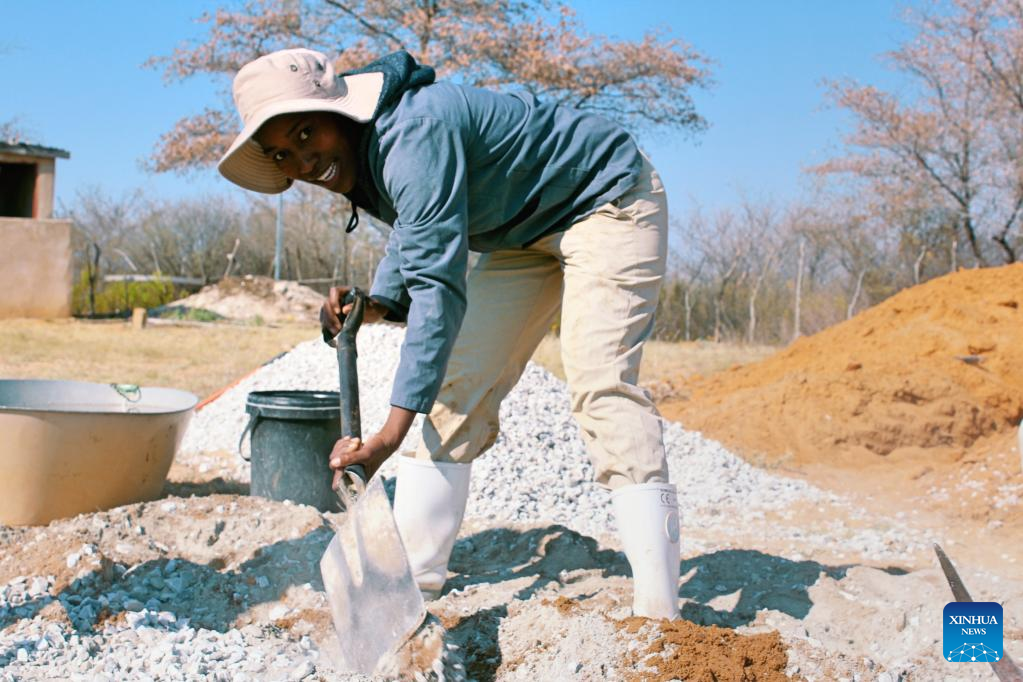
Atamelang Matale works in a biogas digester pit at Betesankwe Village in the Southern District, Botswana, on Sept. 2, 2022. (Photo by Sharon Tshipa/Xinhua)
GABORONE, Oct. 18 (Xinhua) -- At Botswana's Betesankwe Village in the Southern District, about 110 km west of Gaborone, the country's capital, 29-year-old Atamelang Matale is absorbed in building a new biogas digester in partnership with three colleagues.
The new digester, with a size of 30 cubic meters, will be her 20th and so far the largest she has ever built, all using agro-waste, such as cow dung and chicken litter to produce biogas directly used for cooking, heating, and lighting in southeastern Botswana.
"This is the biggest biogas digester I have constructed to date. The digesters I built before only ranged between 6, 10 and 20 cubic meters in size. This is huge, so we will be camping out here for the three weeks it will take to complete it," she told Xinhua in a recent interview.
The undertaking by Matale is a result of her training through the Botswana Biogas Project funded by the Global Environment Facility and the United Nations Development Programme. The Biogas Project launched in January 2017 sought to promote the production and use of biogas as an environmentally friendly source of energy for farms, households and institutions that produce or have access to agricultural waste.
Matale said being a biogas digester mason has made her financially independent despite the gender discrimination that prevails in the male-dominated construction industry.
Tracey Rukero, a young female biogas digester mason who completed her training last year and has since constructed four digesters, shared similar sentiments. "Many people don't think we can do the job," she said.
Since 2018, 70 biogas digester masons have been trained by the Botswana Biogas Project in six vocational training centers, 29 percent of them women.
Speaking at a high-level event on climate change in Kigali, Rwanda's capital, in June this year, Botswana's President Mokgweetsi Masisi reaffirmed the nation's commitment to a gradual transition from over-reliance on coal for electricity generation. He drew attention to the need to increase the country's share of renewable energy, and significantly improve the efficiency of the energy system.
The government regards the development of a sustainable and commercial biogas sector as a key mechanism for achieving the reduction of harmful greenhouse gas (GHG) emissions and effectively managing agricultural waste, especially from the livestock industry.
In its first nationally determined contribution to the global reduction of GHG in 2010, Botswana pledged to reduce its emissions by 15 percent by 2030, taking 2010 as the base year. Botswana's GHG emissions make up 5 percent of Africa's total global emissions, according to the country's Climate Change Policy.
For this commitment to be realized and for biogas to make a plausible contribution to the reduction of GHG, Rukero and Matale's experiences point to the urgent need for mindset change among citizens, some of whom feel that the biogas digester initiative has a bad smell, and producing it means handling dirt.
Matale said the biogas project has been a success already and can go far as it has brought financial relief to Batswana because they are using renewable energy resources to generate energy that is clean and free.
Matale said that during the construction process and at handover, beneficiaries are taught how to feed and operate the digesters. She, however, further explained that the digesters should be carefully maintained and once they run out of energy, they should be fed with new agro-waste such as cow dung in order for them to continue working. ■

Atamelang Matale works to build a biogas digester at Betesankwe Village in the Southern District, Botswana, on Sept. 2, 2022. (Photo by Sharon Tshipa/Xinhua)
